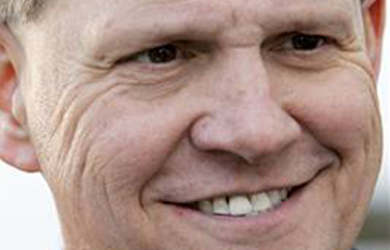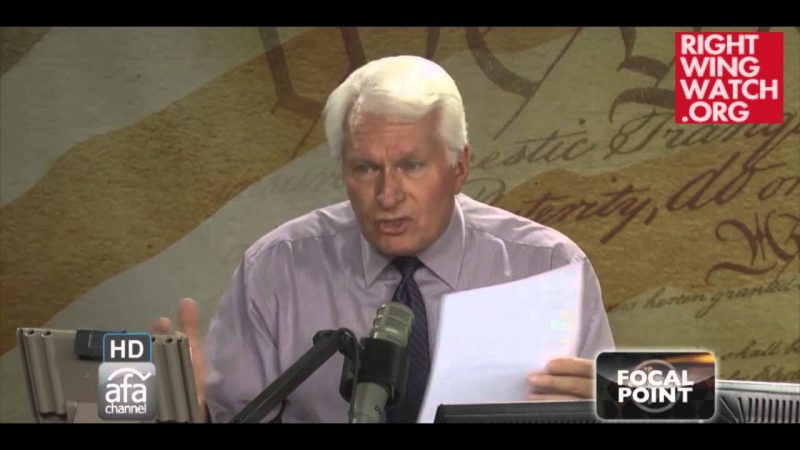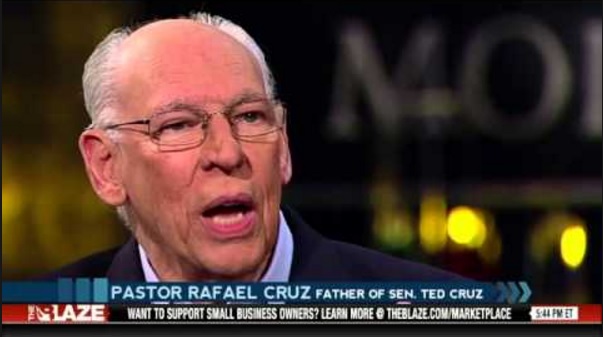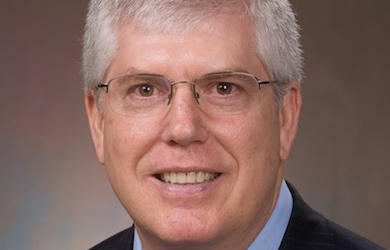The fervently anti-gay writer Frank Turek takes to Townhall today to present an interesting analogy. Turke argues that when gays and lesbians advocate for marriage equality, they are being just as unreasonable as someone who “can’t qualify to become a police officer” protesting “when the government pays other people to be police officers.” He goes on to say that gays and lesbians can “simply marry someone of the opposite sex” and that the legalization of same-sex marriage will harm children and cause Americans to “lose the freedom of speech.”
Of course, the argument that gays and lesbians already have marriage equality because they could just marry a person of a different gender was the same claim made by supporters of anti-miscegenation laws who asserted that interracial marriage was unnatural and that people already have the same right to marry someone of their race.
Here’s why promoting natural marriage exclusively does not deny anyone equal rights.
First, everyone has the same equal right to marry a qualified person of the opposite sex. That law treats every man and woman equally, but not every behavior they may desire equally. Same sex marriage and natural marriage are different behaviors with different outcomes, so the law rightfully treats them differently. One behavior perpetuates and stabilizes society, and the other doesn’t. Promoting one behavior does not deny rights to people who don’t engage in that behavior.
An analogy may help clarify this point. Like marriage, the government promotes police work by paying people to become police officers because police do much good for society. But if you can’t qualify to become a police officer, or if you choose another vocation, your rights are not being violated when the government pays other people to be police officers. All people, regardless of their vocation, experience the benefits of police, just like all people, regardless of their marriage status, experience the benefits of natural marriage.
…
Some will ignore those biological realities and object, “But men and women are the same so there’s no difference between homosexual and heterosexual relationships!” If that were true, no one would be arguing for same-sex marriage. The very fact people demand same-sex marriage is precisely because they know men and women are drastically different. If men and women were the same, no one would be spending time and energy trying to get same-sex marriage approved. They would simply marry someone of the opposite sex—which according to them is the same as someone of the same sex—and be done with it.
…
Now, I am not suggesting that a law would fully achieve either, but only to point out that natural and same-sex marriage should not be legally or culturally equated. The truth is homosexual and heterosexual relationships are not the same, can never be the same, and will never yield the same benefits to individuals or society. We hurt everyone, especially children, by pretending otherwise.
Finally, as jurisdictions with same-sex marriage show us, people lose their freedoms of speech, association, religion and even parenting due to the imposition of same-sex marriage. In Massachusetts, for example, parents now have no right to even know when their kids as young as kindergarten are being taught about homosexuality, much less opt out of it; business owners must now provide benefits to same-sex couples, and they can be fined for declining to provide services at homosexual weddings; Catholic charities were forced to close and leave Massachusetts and Washington D.C. because both governments mandated that all adoption agencies had to provide children to homosexuals. So much for freedom of religion! And in Canada, same-sex marriage has led to such a chilling restriction on speech, that my speech here today could get me fined or jailed if given there.
To sum up, the government already permits homosexual relationships, but promoting them by equating them with married heterosexual relationships ignores the facts of nature, the needs of children and the health of society. While people with different sexual attractions are equal, not all behaviors are equally beneficial. True equality treats equal behaviors equally. It doesn’t demand that different behaviors be treated the same.








